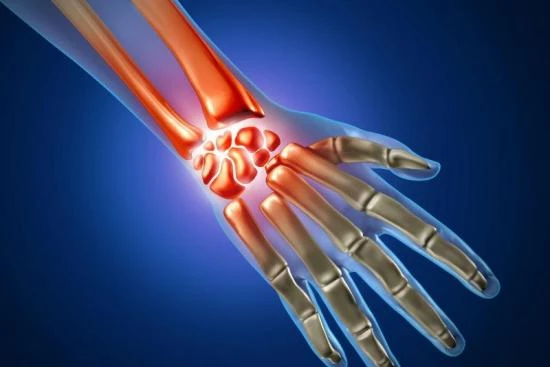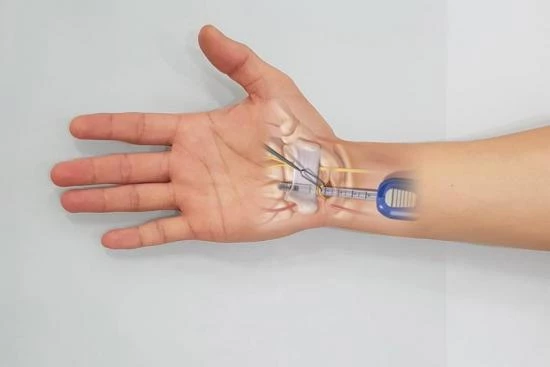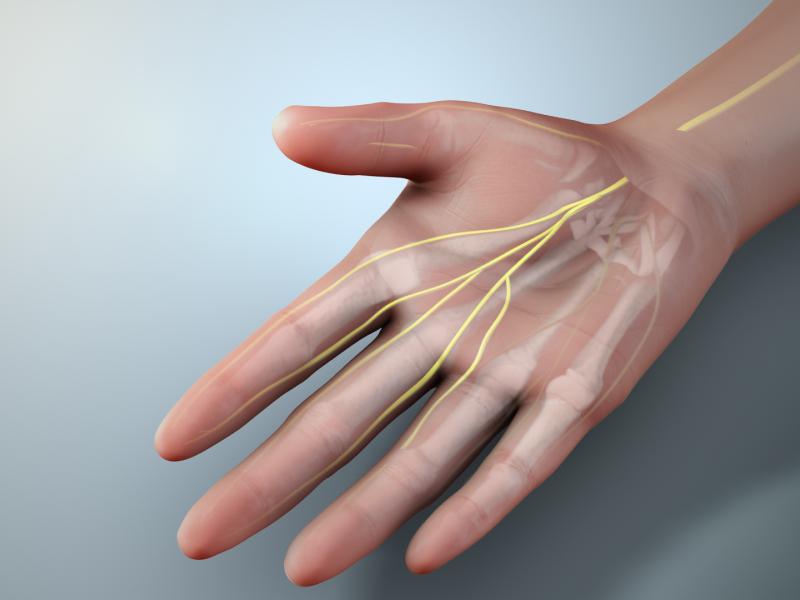Do you have numbness, tingling, or pain in your hand and wrist?
These could be symptoms of carpal tunnel syndrome, a common condition that affects the first three fingers of the hand.
This syndrome is caused by compression of the median nerve at the wrist, in the carpal tunnel. If you're experiencing these symptoms, it's important to see a doctor in Turkey for an accurate diagnosis and to explore treatment options.
- People of all ages, especially those over 50
- People who frequently use their hands with repetitive motions
- Physiotherapy
- Occupational Therapy
- About 20 minutes
- Back to normal activities one week after the operation
Carpal tunnel syndrome surgery cost in Turkey
In Turkey, surgery for carpal tunnel syndrome generally costs between 1,300 and 2,600 euros, depending on the patient's individual case.
Turquie Santé can put you in touch with highly qualified orthopedic surgeons experienced in performing carpal tunnel surgery. They can provide you with a personalized quote based on your individual case.
What's more, Turquie Santé will be with you every step of the way, from booking your appointment to your full recovery.
To find out more about our services, your treatment options, and the exact price of carpal tunnel surgery, don't hesitate to contact us via a free teleconsultation.
Best Clinics with Verified Reviews

- Multispecialized hospital
- 7 operating rooms
- Capacity é of 170 beds

- Multispecialized hospital
- Hospital founded in 2007
- Very good reputation in ENT department
What is carpal tunnel syndrome (CTS)?
The carpal tunnel, a narrow passageway in the wrist, is home to the median nerve, which is essential for hand mobility and sensitivity. Unfortunately, repetitive hand movements can damage the nerves and tendons that connect the hand to the wrist, causing a painful inflammation known as carpal tunnel syndrome.
Symptoms of carpal tunnel syndrome include:
- Tingling, numbness, or burning in the hand, especially at night.
- Weakness or loss of dexterity in the hand, which can make it difficult to grasp objects or make precise gestures.
- Pain in the palm of the hand that may radiate into the forearm.
Unpleasant sensations usually affect the thumb, index, and middle fingers, but can sometimes involve the ring finger or even the entire hand.
Other symptoms of carpal tunnel syndrome may include skin dryness and discoloration.

Causes of carpal tunnel syndrome
Inflammation of the median nerve, the cause of unpleasant symptoms in the hand and wrist, can be explained by a variety of factors, both occupational and pathological.
Occupational factors
At a professional level, certain occupations increase the risk of carpal tunnel inflammation due to:
- Repetitive hand movements: prolonged manual use of a keyboard, hammer or other tools.
- Unnatural or harmful postures: keeping the wrists flexed or extended for long periods of time.
- Tight gripping: gripping objects tightly or frequently.
- Mechanical stress or prolonged static force: Carrying heavy loads or exerting significant pressure on the hands.
- Vibration exposure: Using vibrating tools such as jackhammers or chain saws.
Disease factors
Pathologically, many conditions can also trigger inflammation of the median nerve, including:
- Diabetes.
- Hypothyroidism (underactive thyroid gland).
- Chronic kidney failure.
- Fractures and dislocations of the wrist.
- Wrist cysts.
- Pregnancy.
- Menopause.
- Hemodialysis treatment.
In some cases, inflammation of the median nerve has no specific cause. This is called idiopathic carpal tunnel syndrome (ICTS).

Diagnosis and medical treatment
Confirmation of carpal tunnel syndrome is usually based on a thorough clinical examination and careful analysis of the patient's medical history. In rare cases, however, additional tests may be needed. These include an electromyogram to rule out other possible causes of the symptoms.
Fortunately, surgery is not always necessary. In many cases, simple measures can provide early relief.
Changing repetitive movements or wearing a rigid splint may be enough to reduce pressure on the median nerve. Taking analgesics or nonsteroidal anti-inflammatory drugs may also help relieve pain.
CTS surgical treatment in Türkiye
If symptoms persist despite non-surgical measures and physical therapy, carpal tunnel surgery may be necessary. This procedure aims to decompress the median nerve by cutting the carpal ligament, a bony tunnel in the wrist. By reducing the pressure on the nerve, relief is achieved between the wrist and the hand.
Carpal tunnel surgery in Turkey is usually performed under local or general anesthesia and takes about 20 minutes. It is performed on an outpatient basis, meaning that the patient can return home the same day. The procedure is performed by an orthopedic surgeon who specializing in hand surgery.
With a success rate of over 90%, carpal tunnel surgery is considered a safe and effective treatment option.

Recovery and convalescence
After surgery, a period of rest and rehabilitation is required to promote healing and return of wrist motion. The hand may be slightly numb or tender for a few weeks, but these symptoms usually disappear over time.
In most cases, carpal tunnel surgery effectively relieves the symptoms of the syndrome and improves the patient's quality of life.
Share this page






